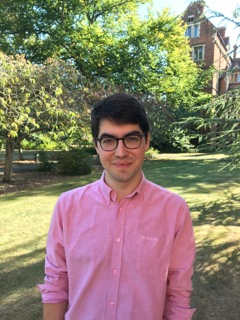The ‘challenge of the century’: transnational LGBTQ activism and the birth of Britain’s radical HIV/AIDS movement, from Thatcher to the 1990s.
The Triangle Global British History Seminar of the Carolina Seminars presents:
George Severs, U. Cambridge, and U California, Riverside
Oct. 11, 4-6pm, National Humanities Center
From Mr. Severs:
This paper examines the history of Section 28 of the UK Local Government Act 1988, which forbade local authorities in the UK from ‘promoting homosexuality’. Section 28 was spoken of in the gay press as the “challenge of the century,” sparking the largest movement of lesbians, gay men and their allies in British history. Despite this, very little scholarly attention has been paid to Section 28, and that which has is often blinkered by assumption.
I take on two major misunderstandings about the Section’s history: that it was the brainchild of Prime Minister Margaret Thatcher, and that Section 28 had no impact. Though many people in the academy and the media speak of Section 28 as “Thatcher’s Clause,” my research shows that, in fact, Thatcher had no part in its drafting and in its passage through parliament. Her broad assaults on left-wing Labour-controlled councils have been confused with direct support for Section 28, which has served to blind us to the wider cast of actors at work in this story. Moreover, because no council was ever charged with contravening Section 28, many have written it off as an ineffectual piece of legislation. I argue, however, that looking at the last rung of the legal ladder is not a fit model for determining the impact of the law. Instead, I demonstrate that Section 28 was implemented across several councils, with lesbian and gay groups stripped of their funding and ostracised from the local council. Yet the main impact Section 28 had was in creating a large, diverse movement of resistance to it. I chart the history of this international movement, and show how it directly spawned the radical HIV/AIDS movement of the 1990s.
To request a copy of the pre-circulated paper, please write to Prof. Susan Pennybacker (pennybac@email.unc.edu)
This event is co-sponsored by The Triangle Legal History Seminar, The Transnational and Global Modern History Seminar, Department of History (UNC-CH), Program in Sexuality Studies (UNC-CH), and the Center for European Studies (UNC-CH).

